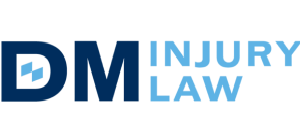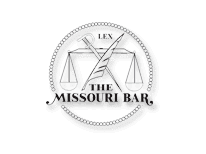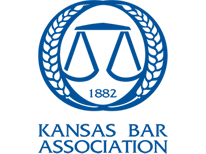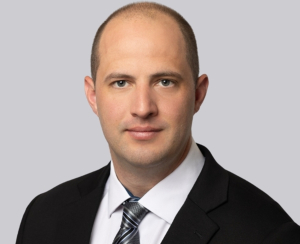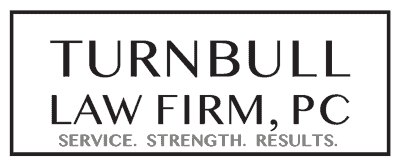Questions & Answers About Accident & Injury Claims in Colorado
What types of cases do personal injury law firms handle in Colorado?
Motor Vehicle Accidents
These include car crashes, truck accidents, motorcycle collisions, and pedestrian injuries. Victims may be entitled to compensation for medical expenses, lost income, property damage, pain and suffering, and other damages. With Colorado's growing population and busy highways like I-25 and I-70, these cases are especially common in Denver and surrounding areas.
Slip and Fall Accidents (Premises Liability)
Whether it’s a wet floor in a grocery store, poor lighting in a stairwell, or uneven pavement on a public sidewalk, property owners in Colorado have a legal duty to keep their premises safe. If hazardous conditions lead to injury, victims may have grounds to pursue a premises liability claim.
Product Liability Cases
Defective or dangerously designed products—such as auto parts, appliances, or medical devices—can cause severe injury. In Colorado, manufacturers, distributors, and even retailers may be held responsible when consumers are harmed due to product defects.
Workplace Injuries
While many injuries are covered under Colorado workers’ compensation laws, injured employees may still have third-party claims if unsafe equipment, negligent contractors, or other external factors contributed to the injury.
Dog Bites and Animal Attacks
Colorado law holds dog owners strictly liable for bites resulting in serious bodily injury, even if the dog had no prior history of aggression. These cases are especially serious when involving children or delivery workers.
Wrongful Death Claims
Families may be eligible to file a wrongful death lawsuit when a loved one dies due to someone else’s negligence—such as in fatal car crashes, medical malpractice, or construction site incidents. Colorado law allows surviving family members to pursue damages for loss of companionship, funeral costs, and financial support.
Toxic Exposure & Environmental Injury
Colorado’s industrial sites, mining history, and agricultural operations mean residents may face risks from hazardous chemicals, asbestos, pesticides, or polluted water sources. Victims of toxic exposure may suffer long-term health effects and require specialized legal representation.
Birth Injuries and Medical Negligence
Mistakes during pregnancy or childbirth—such as delayed C-sections or failure to monitor fetal distress—can lead to permanent injuries to the baby or mother. Hospitals and medical professionals in Denver can be held liable if their actions fall below the accepted standard of care.
Social Security Disability Claims
When injuries or medical conditions prevent individuals from working, applying for Social Security Disability Insurance (SSDI) or Supplemental Security Income (SSI) may be necessary. Colorado-based disability lawyers help navigate the application and appeals process to secure benefits.
Recreational and Outdoor Accidents
Given Colorado’s outdoor lifestyle, skiing accidents, boating injuries, bike crashes, or hiking injuries are not uncommon. When negligence, unsafe equipment, or poorly maintained public or private spaces are to blame, victims may have legal recourse.
Why Legal Help Matters
No matter the type of injury, if negligence played a role, victims may be entitled to compensation under Colorado law. Consulting with a knowledgeable Denver personal injury attorney can help determine the right path forward—whether that’s filing an insurance claim or pursuing litigation.
What types of damages can a personal injury lawyer in Colorado help me recover?
Medical expenses include reimbursement for all current and anticipated future medical bills related to the injury. This can cover hospital stays, surgeries, doctor visits, prescription medications, diagnostic testing, physical therapy, and other treatments necessary for recovery. In cases involving long-term disability, these expenses may also include ongoing care, home modifications, and assistive equipment.
Lost wages compensation applies when an injury prevents a person from working during their recovery period. In more serious cases, where the injury limits a person’s future earning potential, victims may also be entitled to damages for lost future income or diminished earning capacity, especially if they are no longer able to return to their prior job or profession.
Pain and suffering damages address the physical pain, emotional distress, and psychological effects caused by an injury. This includes anxiety, depression, trauma, and the loss of enjoyment of life. In Colorado, non-economic damages like pain and suffering are capped in some cases, but they remain a vital part of personal injury compensation and can significantly increase the value of a claim.
Loss of consortium applies when injuries severely impact the victim’s relationship with their spouse or partner. This form of compensation recognizes the loss of companionship, intimacy, emotional support, and affection that often accompanies serious or permanent injuries.
Property damage compensation may be available when a victim’s personal property—such as a vehicle, phone, or other belongings—is damaged or destroyed in the incident. In motor vehicle accident cases throughout Colorado, property loss often forms a separate part of the claim and may require negotiation with insurance providers.
Punitive damages are sometimes awarded in Colorado in cases involving extreme recklessness or intentional wrongdoing. These damages are meant to punish the at-fault party and deter similar conduct in the future. Examples might include drunk driving accidents or serious workplace safety violations that show willful disregard for others’ safety.
Rehabilitation costs can include physical and occupational therapy, psychological counseling, or any other long-term treatment needed to help the victim regain as much functionality as possible. In some cases, this may also involve vocational training if the injured person must change careers due to their limitations.
Loss of enjoyment of life damages are awarded when a person can no longer participate in hobbies, recreational activities, or daily routines they once enjoyed. In a state like Colorado, where outdoor activities such as hiking, skiing, and biking are part of many people’s lifestyles, these types of losses can be especially significant and are often a key component of personal injury claims.
Emotional distress compensation covers psychological suffering directly resulting from the injury. This may include conditions like post-traumatic stress disorder (PTSD), sleep disturbances, social withdrawal, or other mental health struggles that emerge after a traumatic event.
Wrongful death damages may be awarded when a person dies as a result of someone else’s negligence or misconduct. Under Colorado law, surviving family members may be entitled to compensation for funeral and burial expenses, loss of financial support, emotional grief, and the loss of guidance or companionship once provided by the deceased.
Permanent disability or disfigurement compensation is available when injuries result in lasting or life-altering effects such as amputation, paralysis, severe burns, or facial scarring. These damages account for the long-term emotional, social, and economic impact on the victim’s life, and often form one of the most substantial parts of a serious injury case.
A qualified personal injury attorney in Denver or anywhere in Colorado can evaluate all applicable damages, help calculate the true value of the claim, and work to secure full and fair compensation under state law. Whether your case involves a car accident, slip and fall, dog bite, workplace injury, or another form of negligence, the right legal support can make a critical difference in the outcome.
How long do I have after an injury to file a lawsuit in
In some cases, exceptions may apply—such as injuries that take time to become apparent, including those related to toxic exposure or medical malpractice. If the injured person is a minor, Colorado law may allow additional time beyond the standard deadline before the statute begins to run.
Missing the filing deadline can result in losing your right to seek compensation entirely. Speaking with a personal injury lawyer near you in the early stages of your case helps ensure your claim is filed on time and protects your ability to recover damages under Colorado law.
What is the average settlement for a personal injury claim in Colorado?
For less severe injuries—such as soft tissue damage, sprains, or minor fractures—settlements may range from a few thousand dollars to tens of thousands, depending on the extent of recovery needed and the duration of symptoms. More serious injuries, such as broken bones, spinal cord trauma, traumatic brain injuries, or permanent disabilities, often result in significantly higher settlements. These cases may reach six or even seven figures, especially when ongoing medical care, future surgeries, or long-term rehabilitation is required.
Wrongful death claims and cases involving catastrophic injuries typically result in even larger settlements. In Colorado, these claims can reach into the millions when factors like pain and suffering, future lost earnings, and the lifelong impact on the injured party or surviving family members are considered.
Another crucial factor is insurance policy limits, which can cap how much compensation is available, even in high-value cases. This is why it's important to work with a qualified personal injury attorney who can investigate all possible sources of compensation and advocate aggressively on your behalf.
The best accident lawyers in Colorado understand how to calculate the full value of your claim, negotiate with insurance companies, and pursue the maximum compensation available under Colorado law.
How long do most accidents and other personal injury cases take?
More straightforward claims—such as slip and falls or minor car accidents with clear liability and minimal injuries—may settle quickly through insurance negotiations. However, cases involving serious injuries, disputed liability, uncooperative insurers, or multiple responsible parties typically take longer to resolve. Delays often arise when insurance companies challenge fault or attempt to minimize the value of the claim, requiring extended back-and-forth negotiation.
The severity of the injury is also a major factor in determining how long a case might take. If the injured party is still undergoing treatment, it’s generally recommended to wait until reaching maximum medical improvement (MMI) before pursuing settlement. This ensures that the full extent of medical expenses, future care needs, and potential long-term effects are properly considered in the compensation demand.
If the case cannot be resolved through settlement and proceeds to litigation, the timeline can extend significantly. Personal injury lawsuits in Colorado often involve months—or even years—of pre-trial procedures, including discovery, depositions, expert evaluations, and court motions. Additionally, court backlogs and scheduling delays can further prolong the process, especially in urban areas like Denver where dockets may be congested.
Every case is unique, and the best way to get an accurate estimate of your specific timeline is to consult with an experienced personal injury attorney in CO. A lawyer can assess the facts of your case, manage communication with insurers, and help you navigate the legal process efficiently while protecting your rights throughout.
Can I receive compensation if I was partially at fault for a slip and fall accident in CO?
For instance, if you slipped on a wet floor in a grocery store in Denver but were distracted and didn’t see a visible warning sign, a court or insurance adjuster might find you 25% at fault. If your total damages were $50,000, your final compensation would be reduced by 25%, resulting in a settlement of $37,500.
It’s common for insurance companies and property owners to try to shift a larger portion of blame onto the injured party to reduce their financial responsibility. That’s why working with an experienced Colorado slip and fall attorney is important. A skilled lawyer can help demonstrate the property owner’s negligence, challenge unfair fault assessments, and pursue the maximum compensation allowed under Colorado law.
Can I file a personal injury claim if I was injured at work in Denver?
If a third party—such as a subcontractor, equipment manufacturer, or property owner—was responsible for your injury, you may have grounds for a separate lawsuit. For example, if you were injured in a fall at a construction site in Denver due to faulty scaffolding, or suffered a serious injury caused by defective machinery, you may be eligible for compensation beyond what workers’ compensation provides.
Unlike workers’ comp, a personal injury claim can include damages for pain and suffering, full lost wages, future income loss, and other non-economic harm that workers’ compensation does not cover. The best Denver workers' compensation lawyers can evaluate your case and help determine whether a third-party claim is available, ensuring you pursue the maximum compensation allowed under Colorado law.
How do I prove negligence in a personal injury case?
Duty of care means the responsible party had a legal obligation to act in a manner that would prevent harm. For example, drivers are expected to follow traffic laws, and property owners must keep their premises reasonably safe for visitors.
Breach of duty occurs when that legal responsibility is not met. This could include a driver running a red light, a business failing to clean up a spill, or a landlord ignoring dangerous property conditions.
Causation requires showing that the breach of duty directly led to your injuries. In other words, it must be clear that the accident—and the resulting harm—would not have happened if the responsible party had upheld their duty of care.
Damages refer to the actual losses you suffered as a result of the injury. These may include medical expenses, lost income, pain and suffering, emotional distress, or other financial and personal impacts. Without documented damages, there is no viable claim.
Proving negligence often involves gathering strong supporting evidence such as medical records, accident reports, witness testimony, expert opinions, or video surveillance. An experienced personal injury attorney can help investigate the facts, build a compelling case, and pursue the full compensation you deserve.
What if the dog bite happened on private property—do I still have a case?
If you were trespassing or provoking the dog, your claim may be limited or denied. But if you were there lawfully and the owner failed to control the dog, they may be held responsible for medical bills, lost income, pain and suffering, and other damages. Dog bite laws vary by state, so it’s important to speak with a dog bite injury lawyer near you to understand your rights.
Elite reviews
Editorially researched Highlights pros & cons
-
DM Injury Law
Read review -
Lerner & Rowe
Read review -
Turnbull Law Firm
Read review
